If your Registry changes are not saving after reboot or taking effect, this article will help you fix this issue. Registry Editor allows us to configure our system differently and make different administrative-level changes effectively. Therefore, it is a powerful tool, especially for system administrators. However, if it does not save changes or stop saving changes, it can cause issues for system administrators.

Registry changes not saving after reboot or taking effect
If the Registry changes are not saving after reboot or taking effect on your Windows 11/10 PC, use these fixes:
- Disable Fast startup
- Run SFC and DISM scan
- Edit Registry from Command Prompt
- Change permissions of the particular Registry key
- Create a new administrator user account
- Reset your PC
Let’s start.
Registry Editor not saving changes
1] Disable Fast startup
We also suggest you disable Fast startup. To do so use the steps below:
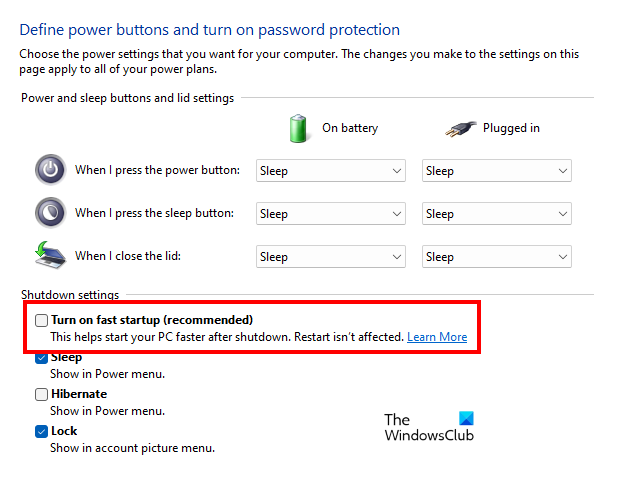
- Open Control Panel.
- Change View by to Large icons.
- Click on Power Options.
- Click on Choose what power button does and then on Change settings that are currently unavailable.
- Untick Turn on Fast Startup.
- Click on Save changes.
Check if it brings any changes.
Read: When do changes to the Registry get saved in Windows and Why?
2] Run SFC and DISM scan
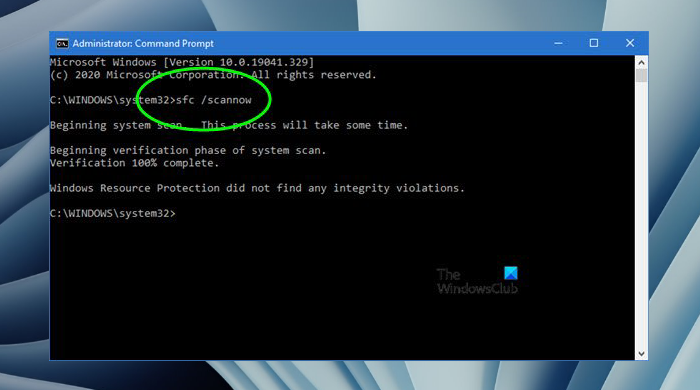
A corrupted system file can cause this issue. In this case, you should scan the system image files. To do this, run the System File Checker tool. Open Command Prompt as an administrator and run the following command.
sfc /scannow
If this doesn’t work, we will run DISM in Command Prompt (admin) and see if that helps.
3] Edit Registry from Command Prompt
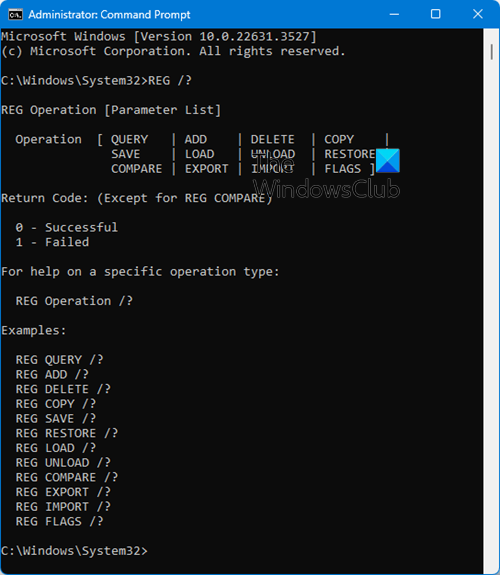
You can edit the Registry using Command Prompt and see if that works for you.
To get started, to get the list of operations, run the command below:
REG /?
The Operation List will appear, as well as the Return Code for each command.
4] Change permissions of the particular Registry key
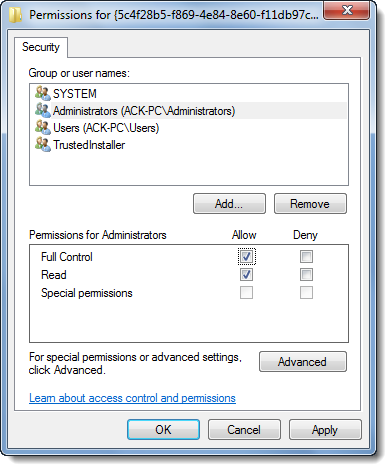
There is a possibility that this problem occurs due to permission issues. In this case, we suggest you take ownership of that particular registry key. Check if it brings any changes.
Before you take permissions of the Registry key, we recommend you create a System Restore Point.
5] Create a new administrator user account
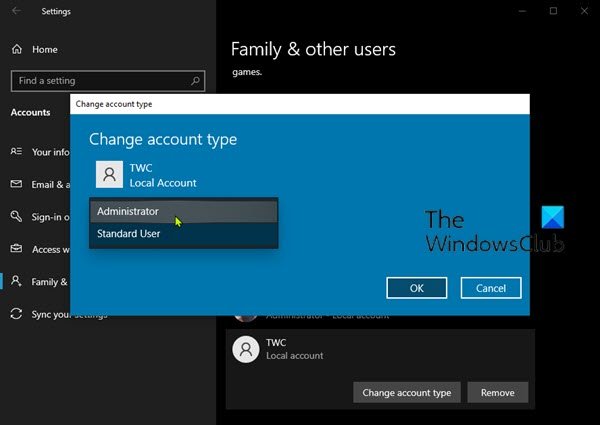
Sometimes, issues are associated with a particular user account or a user account might be corrupted. This can be the case with you. To check this, create a new administrator user account and then see if registry changes are saved in that account.
6] Reset your PC
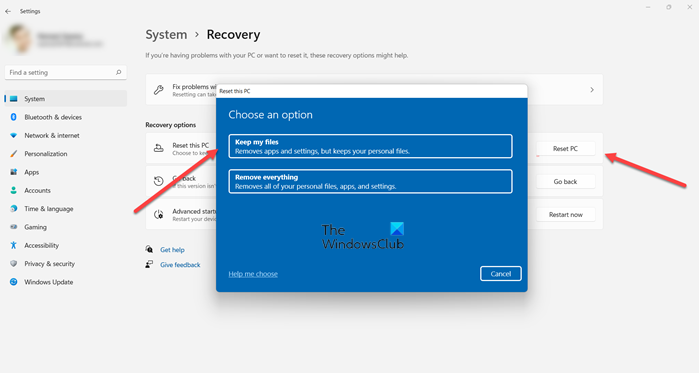
If the Registry is still not saving the changes, you can reset your PC without deleting data. While performing this action, select the Keep my files option.
I hope this helps.
Do registry edits take effect immediately?
Most Registry Edits do not take effect immediately. You have to restart Windows Explorer or your computer for the changes to take effect. However, some Registry edits take effect immediately.
How do I save changes to my registry?
When you make changes to Registry keys, Windows automatically saves those changes. You have to restart your computer for the changes to take effect. However, in some cases, the changes take effect immediately.
Read next: How to make Registry changes take effect immediately without restart.
Leave a Reply